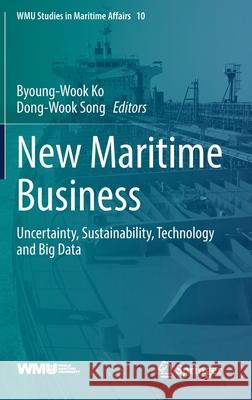New Maritime Business: Uncertainty, Sustainability, Technology and Big Data » książka
topmenu
New Maritime Business: Uncertainty, Sustainability, Technology and Big Data
ISBN-13: 9783030789565 / Angielski / Twarda / 2021 / 200 str.
New Maritime Business: Uncertainty, Sustainability, Technology and Big Data
ISBN-13: 9783030789565 / Angielski / Twarda / 2021 / 200 str.
cena 887,69
(netto: 845,42 VAT: 5%)
Najniższa cena z 30 dni: 771,08
(netto: 845,42 VAT: 5%)
Najniższa cena z 30 dni: 771,08
Termin realizacji zamówienia:
ok. 16-18 dni roboczych.
ok. 16-18 dni roboczych.
Darmowa dostawa!
Kategorie:
Kategorie BISAC:
Wydawca:
Springer
Seria wydawnicza:
Język:
Angielski
ISBN-13:
9783030789565
Rok wydania:
2021
Wydanie:
2021
Numer serii:
000458843
Ilość stron:
200
Waga:
0.50 kg
Wymiary:
23.39 x 15.6 x 1.42
Oprawa:
Twarda
Wolumenów:
01











